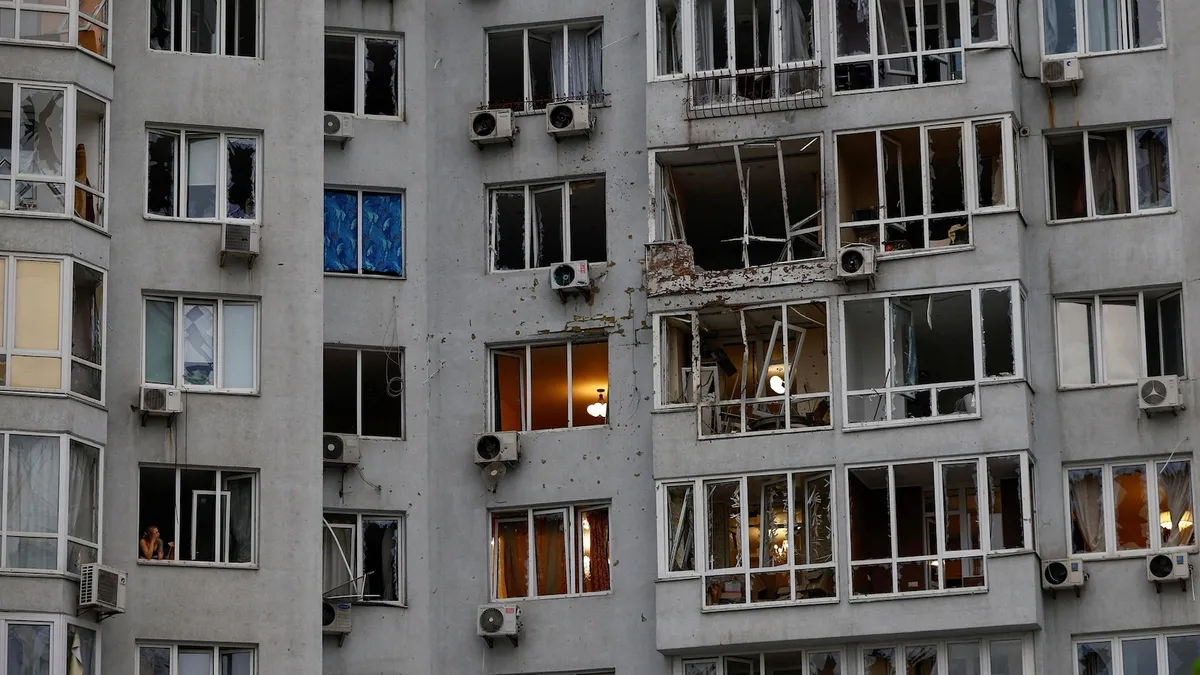
In a significant military response, Polish and allied NATO aircraft were scrambled on Sunday night following a large-scale attack involving Russian drones and missiles targeting Ukraine. The information was confirmed by the Polish military's Operational Command, which stated that both air and ground-based defense systems had been placed on high alert.
The alert, which lasted for approximately three hours, signified a heightened state of readiness among Polish and allied forces. The Operational Command issued a statement shortly after midnight, announcing that all duty aircraft had been mobilized and that ground-based air defense and radar reconnaissance systems were fully operational. After the alert period, forces and resources were returned to standard operational activities, highlighting the swift response to the threat.
During this incident, NATO's Air Command played a crucial role, with Swedish JAS 39 Gripen fighters stationed in Poland participating in the defensive measures. This collaboration underscores the ongoing commitment of NATO allies to support Ukraine amidst escalating tensions in the region.
Adding to the complexity of the situation, an official from Lithuania's Defense Ministry confirmed a drone had crossed into Lithuania from Belarusian airspace. This development aligns with reports that Russian forces frequently utilize Belarusian airspace to launch drone attacks on Ukrainian targets. As of Monday morning, a search operation for the drone was still in progress.
According to the Ukrainian air force, Russia launched a staggering 324 drones and seven missiles into Ukraine during the overnight assault. Fortunately, the Ukrainian defenses managed to intercept and neutralize 309 drones and two missiles. However, 15 strike drones and two missiles successfully impacted three locations across Ukraine, highlighting the ongoing threat posed by Russian military actions.
The assault resulted in at least eight injuries in Kyiv, where a Russian drone struck a residential high-rise building. Andriy Yermak, the head of Ukrainian President Volodymyr Zelenskyy's office, condemned the attack, emphasizing that it reflected Russian President Vladimir Putin's disregard for proposed ceasefire negotiations. Yermak expressed that this incident serves as a grim reminder of Russia's relentless aggression.
As air attacks persist, civilian infrastructure, homes, and lives remain at risk, particularly in Kyiv. Yermak reiterated the necessity for sustained international sanctions against Russia and the need to enhance Ukraine's long-range military capabilities. He firmly stated, "There is no alternative to sanctions, strengthening Ukraine's long-range capabilities and tough actions against Putin's circle and Putin himself." His message was clear: Ukraine will not succumb to defeat.
Addressing the incursion of drones into Baltic airspace, Yermak remarked, "The Russians and their satellites are testing NATO's reaction." This assertion underscores the seriousness of the situation, as such incidents cannot be overlooked. The presence of drones in the airspace of NATO member states poses a significant threat to regional security.
President Zelenskyy also took to Telegram, emphasizing the importance of bolstering Ukraine's air defense systems. He highlighted ongoing efforts to close the funding gap for drone production and announced upcoming discussions with international partners to further this goal. Zelenskyy assured that restoration and rescue operations are underway in all affected areas, particularly focusing on restoring electricity supply and providing necessary assistance to the wounded.
In contrast, Russia's Defense Ministry reported that its forces had shot down seven Ukrainian drones overnight, reflecting the ongoing disinformation and propaganda surrounding the conflict. This situation continues to evolve, with both sides engaged in a complex military and information warfare environment.